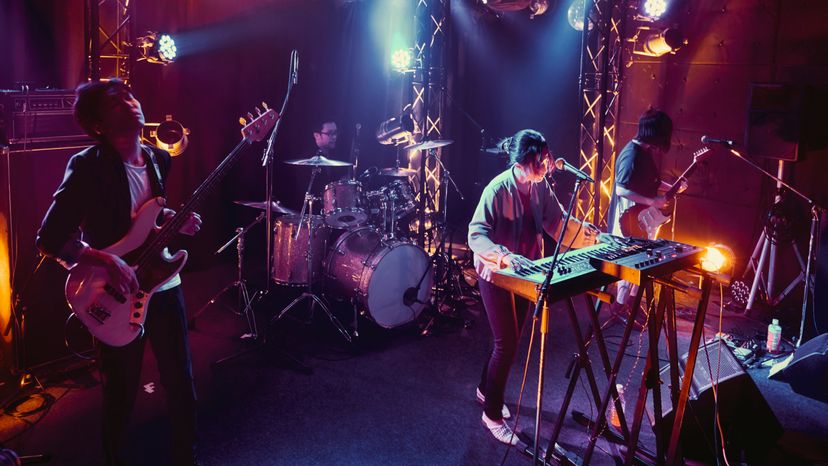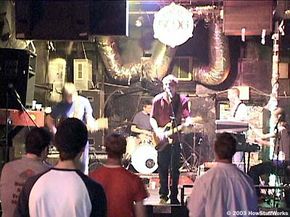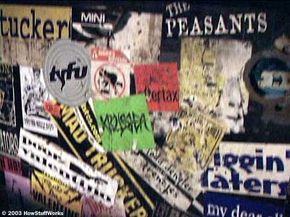
Being in a band and playing for kicks is all well and good if you have no aspirations of quitting your day job. But if the dream is to make something resembling a living in the music industry, you need to be playing in public. It's pretty cut and dry: If the public likes you, you're in; if they boo you off the stage, rethinking your music might be a good idea -- unless you're actually going for the "unappreciated in your own time" thing -- in that case, rock on. The ideal response to the public display of your music is to develop a following. A significant following is the first step toward any sort of entry into the "music industry."
Another reason to get your band onstage is so you can play songs "for real." The audience adds an intensity that is missing in practice sessions. The energy that builds when doing a set in front of a live audience is impossible to replicate.
Advertisement
If you want to play in public as a stepping stone to a music career, you want to be getting paid for your performance -- and setting up on a street corner and laying out a guitar case isn't exactly resume material for your breakthrough in the industry. But getting paid to play in public isn't easy. You're looking at a bunch of things that need to happen:
- Your band has to have its act together enough to produce a decent demo CD.
- That demo CD has to get into the hands of someone who can book you at a club or venue.
- That someone has to listen to the CD, like what he/she hears and imagine that the music will draw a crowd.
- That someone has to make a decision to book you and sign a contract with you.
- Your band has to show up, play, draw a crowd and make the crowd happy. If no one comes to listen or if the audience leaves unhappy, you don't get a second gig.
In this article, we'll walk you through all of these steps so you can get a better grip on what it takes to start playing in clubs.
Advertisement

